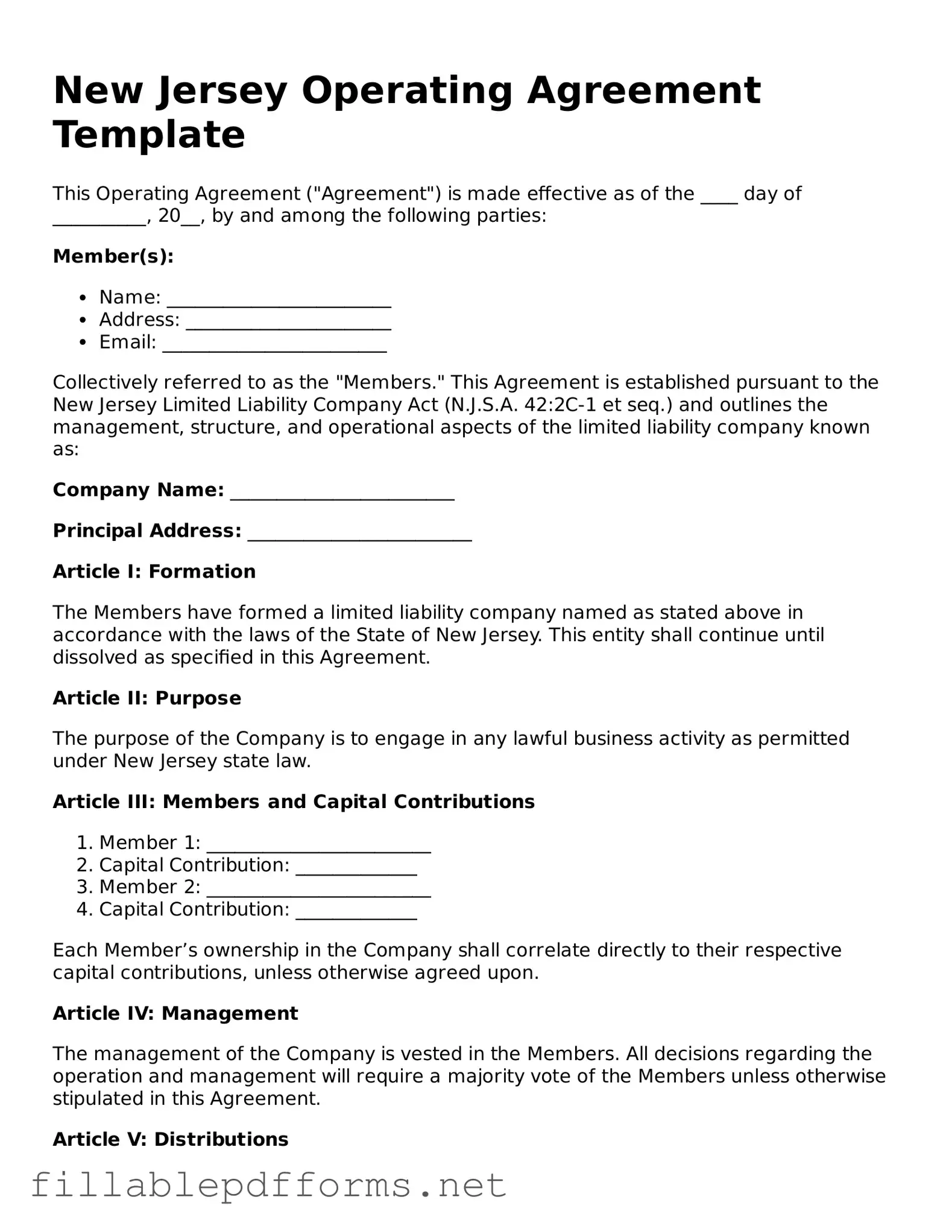Attorney-Verified Operating Agreement Form for New Jersey State
The New Jersey Operating Agreement form is a crucial document for limited liability companies (LLCs) in the state. It outlines the management structure, responsibilities, and financial arrangements among members. Understanding this form is essential for ensuring compliance and protecting the interests of all parties involved.
Launch Editor Here

Attorney-Verified Operating Agreement Form for New Jersey State
Launch Editor Here

Launch Editor Here
or
▼ Operating Agreement PDF
Almost there — finish the form
Complete Operating Agreement online fast — no printing, no scanning.